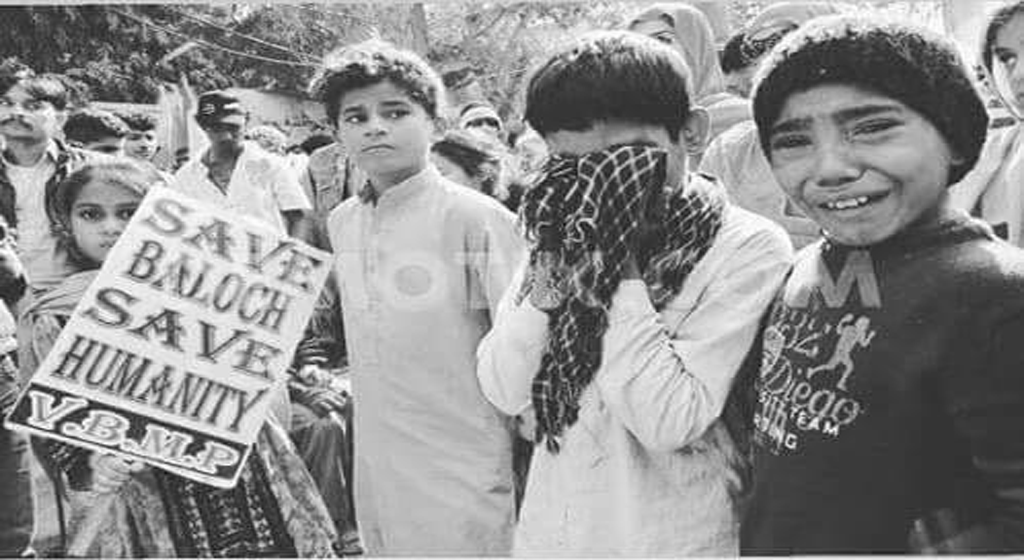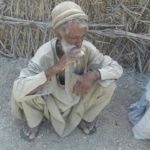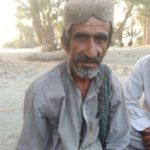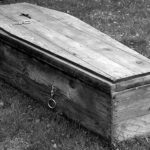Seventy-two more cases of enforced disappearance have been reported during the month of October 2018 so far, while five persons were killed in Awaran and Kech districts of Balochistan.
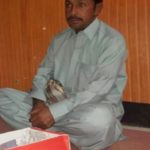
Wahid Umar died in a hospital in Turbat on 13 October after he was released from the military’s detention. He was tortured badly and was taken to hospital as soon as he was released. But he could not recover and died soon after he was taken to hospital. He was abducted by security forces from Dasht area of district Kech on 21 September 2018.
In another case, the tortured body of Ali Dost Jan Muhammad was found dumped in Panjgur Balochistan on 14 October 2018. He was allegedly abducted by armed men linked to military, on 6 June 2017.
Sadiq Nasir and Asad Domado were willfully killed by security forces during a search operation in Bolan area of Balochistan on 14 October. Many locals say they were arrested by security forces first and then shot killed on spot.
In another incident, Rasool Bakhsh of Awaran was killed in a battle between Baloch armed nationalists and an armed group, allegedly linked to the powerful military of Pakistan, on 16 October 2018.
Disappeared persons include four women, Khair Bibi, Mah Jan, Samina and Lal Khatoon of Awaran Balochistan who were abducted by security forces during a military operation on 7 October 2018. Whereabouts of all these women are still unknown. More than fifty women and children have been abducted by military in Awaran region since December 2017. Most of them are kept at a house near military camp in Mashkay, district Awaran. The issue of abduction of women and children came into light when a pregnant lady, Naz Gul died of lack of medical assistance during the pregnancy related complications in the illegal detention in April 2018.
Nine more persons were abducted by military from same region of Awaran Balochistan in different raids. Five of them, Mohammad Ashraf, Rasheed Muhammad, Majeed Noor Muhammad, Basheer Ahmad and Muhammad Ramzan on 7 October, Muslim Taj Mohammad on 10 October and Noor Bakhsh, Abdul Raheem and Pasund on 19 October 2018.
Twenty-four persons were abducted and forcibly disappeared in district Kech. Akhtar, Akbar, Zubair and Yasir Jalil were abducted on 1 October from Buleda area of district Kech. Yasib and Aqeel were abducted in Dasht on 2 October, Yousuf Iqbal was abducted on 3rd and Meeruk and Badil were abducted on 4th of October 2018. On 20 October, forces raided a house in Tump area of district Kech and abducted Ghalib and Shahdad from their house.
Washdil Bojer, Swali Ahmed, Ishaq Hussain, Lateef Faqeer, Babul Mohammad, Dad Bakhsh Karim bakhsh, Waqar Arz Muhammad and Elahi Bakhsh Rahim Bakhsh were abducted by security forces during an operation in Pidrak area of district Kech on 19 October 2018.
Khalil Yar Muhammad and Sadiq Qadir Bakhsh were abducted from district Panjgur on 14 October 2018.
Eleven persons, Matho Khan, Alim, Nasro, Sahib Khan, Nizam Uddin, Hasan Khan, Gul Alim, Zareef, Kamal, Salah Uddin and Jalal Uddin were abducted during a military operation in Bolan area of Balochistan on 14 October.
Ali Akbar Yar Muhammad was abducted by security forces on 16 October and Sarmad Hameed, Moosa Iqbal, Mujib Iqbal and Qadir Hasil in different raids on 20 October in Gwadar Balochistan.
Abdul Waheed Khuda Bakhsh was abducted by military from a Bus terminal in Khuzdar area of Balochistan on 18 October 2018.
Ahmed Ghani, Azhar Jalil, Haleem and Qadir were abducted by security forces in different raids, on 15 October, according to initial reports.
The Pakistan military adopted a policy of enforced disappearances and severe military operations to stifle the Baloch peoples struggle for their political and economic rights. Since 2004, thousands of Baloch activists, poets, students, rights activists and others have been forcibly disappeared. The military keeps their whereabouts unknown and subjects them to torture for months and sometimes for years.
In 2009, the situation got worse. The Pakistan military abducted three key Baloch leaders, including Ghulam Mohammad Baloch who was the President of the Baloch National Movement (BNM), from the Turbat city of Balochistan on April 3, 2009. In a week, on April 9, their tortured and bullet-riddled bodies were found dumped near the Turbat city. It was the beginning of the military’s now infamous kill-and-dump operations, in which they abduct political activists, journalists, educationists, student activists and human rights defenders, and later dump their bodies in desolated areas.
